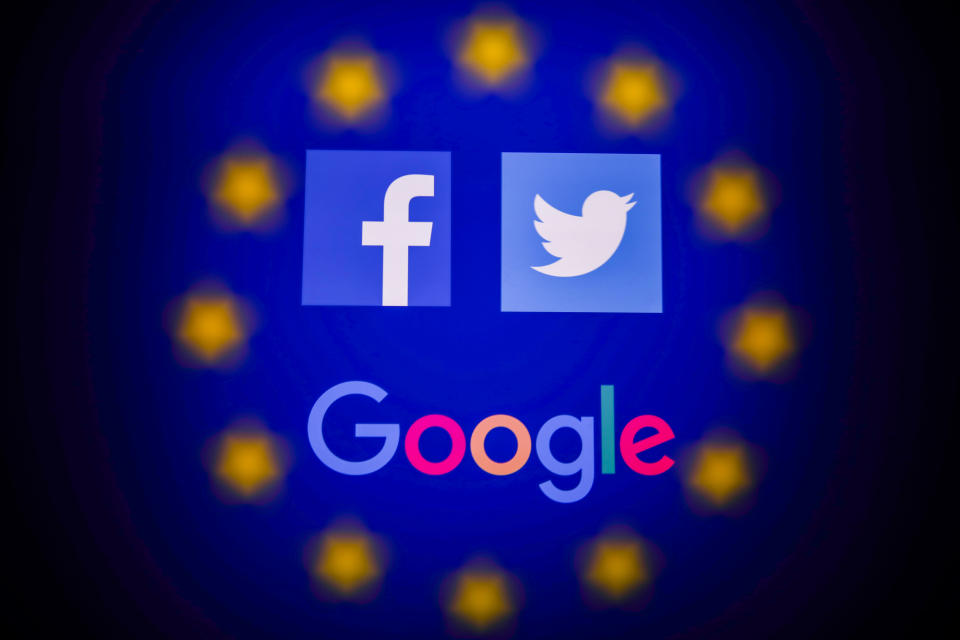Chamath Palihapitiya: Facebook, Amazon, Google, face modern-day trustbusting
Billionaire Chamath Palihapitiya, the CEO and founder of tech holding company Social Capital, thinks big technology companies are facing a modern-day antitrust revolution that will break them up and fragment media consumption even more.
In Social Capital’s annual investor letter, Palihapitiya analogized what's happening today to the Gilded Age of the 1870s to 1900 that ushered in the Progressive Era. That turbulent period saw sweeping social movements and reforms, including women's suffrage, the rise of labor unions, a crackdown child labor — and the regulation of monopolies, known as trust busting.
Palihapitiya believes the 21st century version will target big tech names like Facebook (FB), Amazon (AMZN), Apple (AAPL), Microsoft (MSFT), and Alphabet (GOOGL) with more government regulation. All have been the subject of rising political and societal pressures.
The billionaire investor believes the world is in “a massive move towards a more socialist definition of how society should work.”
What that means is “essentially, the pendulum swinging away from trickle-down, top-down economics and effectively swinging towards a bottoms-up reallocation of social services and the quality they deliver and the prices in which they should deliver them at," Palihapitiya told Yahoo Finance in a recent wide-ranging interview.
This pendulum has also swung between "aggregated, mega, monolithic companies and highly fragmented disaggregated services," he added.
Accordingly, Palihapitiya expects the shift will benefit people by giving them what they want at “a lower and lower cost. And those things will be consumed by many companies who can give that to consumers versus the few companies doing it.”
He added: “So what it means for tech is probably that it gets regulated. It gets taxed. It basically gets broken up.”
The billionaire’s investor letter suggested that the disaggregation effect could result in "some of iPhone, Azure, AWS, Amazon Retail, Google Search, Youtube, Gmail, GCP, Facebook, WhatsApp and Instagram" becoming "distinct companies who are explicitly not allowed to share data amongst each other."
He also sees governments aiming to tax revenues generated within their borders as the trend toward nationalism continues.
All told, targeting big tech in this way, is "more a reflection of the moral temperature of society than it is on anything necessarily nefarious that these tech businesses are going to do or have done. It's just that I think people are tired of a few companies owning and controlling too much of the real estate and surface area," Palihapitiya told Yahoo Finance.
No ‘Swiss Army knife’ approach

A former Facebook executive who joined the social network in 2007 before starting Social Capital in 2011, the investor expects what happened to traditional broadcast television in the last century will eventually overtake social platforms.
In the first half of the 20th century, the media landscape was dominated by three media giants — NBC, CBS and ABC.
“And then, over the course of the next 60 or 70 years, through a combination of deregulation and legislation and government incentives as well as economic incentives by different capital market participants, what we saw was an explosion of content, Palihapitiya stated.
Technology and shifting consumer demand eventually led to an explosion of content providers. “And I think that's exactly what's happening online because we started in a place where there were really, you know, two or three major outlets. And those two or three major outlets had to serve everybody," he said.
He added that with social media today, it's "basically impossible to serve everybody with the same product" and that there "is no Swiss Army knife approach that works."
Meanwhile, a polarized electorate has made social media platforms cater to specific political demographics. According to the investor, Twitter (TWTR) is “pivoting more towards the liberal left. Facebook tends to be pivoting more towards the right and the libertarian, at least in America," he said.
But the reality is that there is this really interesting disaggregation that's happening in media. And you know, these companies are media companies. And I think that governments will regulate them as such," he added.
While this disaggregation happens, more products and services will emerge "that fit niche audiences that meet the narratives that, frankly, they want to hear.” That is likely to lead to more polarization, according to Palihapitiya.
"[I] think that's just the unfortunate reality of where we as a society, which is that it's hard to find a way, in a de-escalated manner, to question your assumptions without feeling attacked,” he told Yahoo Finance.
“And until we fix that problem, which is more sort of a, you know, a moral decision by society, these products will get more and more fragmented and serve more and more niche audiences with specific kinds of content," he added.
Julia La Roche is a Correspondent for Yahoo Finance. Follow her on Twitter.
Palihapitiya: Skip government bailouts, put ‘more money into the hands of consumers’
Gundlach: A wave of layoffs is coming for $100,000/year white-collar jobs
Gundlach sounds off on prospects of a V-shaped recovery as ‘highly optimistic’
Gundlach lashes Fed’s ‘incredible fiscal spending’ during coronavirus collapse
Gundlach: Why the dollar and tech rally are ‘real risks’ for investors

 Yahoo Finance
Yahoo Finance 